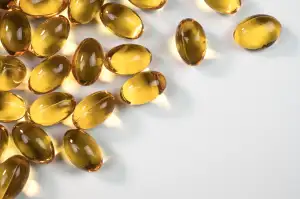Exploring Effective Alternatives: Last Resort Before Accutane for Clearer Skin

When traditional acne treatments like over-the-counter products and prescription medications fail to provide the desired results, dermatologists may recommend exploring alternative options before resorting to isotretinoin (commonly known as Accutane). These last resort alternatives aim to effectively clear severe acne while minimizing the potential side effects associated with Accutane. By considering various treatment modalities, individuals can work towards achieving clearer skin without immediately turning to this powerful medication.
Topical Retinoids and Antibiotics
Topical retinoids, such as tretinoin and adapalene, are commonly prescribed for acne treatment. They work by unclogging pores and promoting cell turnover to prevent new breakouts. Antibiotics like clindamycin or erythromycin can also be applied topically to reduce inflammation and kill acne-causing bacteria. Combining retinoids with antibiotics can be more effective in treating moderate to severe acne compared to using either treatment alone. It is important to follow your dermatologist's instructions for proper application and potential side effects like dryness or irritation.
Oral Antibiotics and Hormonal Therapy
Oral antibiotics are commonly prescribed for acne treatment to reduce inflammation and kill bacteria. Tetracycline, doxycycline, and minocycline are some of the most frequently used antibiotics. Hormonal therapy, such as birth control pills containing estrogen and progesterone, can be effective in managing hormonal acne in women by regulating hormone levels. Spironolactone is another option that blocks androgen hormones to reduce oil production. These treatments should be prescribed and monitored by a dermatologist due to potential side effects like antibiotic resistance or hormonal imbalances.
Chemical Peels and Laser Therapy
Chemical peels and laser therapy are popular options for treating acne before resorting to Accutane. Chemical peels work by removing the top layer of skin, promoting cell turnover and unclogging pores. They can improve the appearance of acne scars and reduce inflammation. Laser therapy targets bacteria that cause acne and reduces oil production in the skin. It also stimulates collagen production, improving skin texture. These treatments are effective for mild to moderate acne but may require multiple sessions for optimal results. Always consult a dermatologist before undergoing these procedures for personalized advice.
Photodynamic Therapy and Steroid Injections
Photodynamic therapy (PDT) is a treatment that uses photosensitizing agents and light to target and destroy acne-causing bacteria. It can also reduce oil production in the skin and minimize inflammation. PDT is particularly effective for inflammatory acne lesions. On the other hand, steroid injections are commonly used to quickly reduce inflammation in large, painful acne cysts. They work by decreasing swelling and redness, providing immediate relief. However, it's important to note that steroid injections are not a long-term solution and should be used sparingly due to potential side effects like skin thinning and discoloration. Consulting with a dermatologist is crucial to determine if PDT or steroid injections are suitable options for your specific skin condition.
Dietary Changes and Lifestyle Modifications
Dietary changes and lifestyle modifications can play a significant role in improving skin health. Consuming a diet rich in fruits, vegetables, whole grains, and lean proteins can provide essential nutrients for skin regeneration and repair. Avoiding high glycemic foods and dairy products may help reduce acne flare-ups. Adequate hydration is crucial to maintain skin elasticity and flush out toxins. Additionally, managing stress through relaxation techniques like yoga or meditation can help prevent hormonal imbalances that contribute to acne. Making these adjustments can complement other treatments for clearer skin.
Consultation with Dermatologist for Personalized Treatment Plan
Consultation with a dermatologist is crucial for developing a personalized treatment plan tailored to individual skin needs. Dermatologists are trained to assess the specific type of acne and its severity, taking into account factors such as age, gender, medical history, and lifestyle. They can recommend the most suitable combination of treatments, monitor progress, and adjust the plan as needed. Seeking professional guidance ensures safe and effective management of acne, ultimately leading to clearer and healthier skin.
Published: 21. 03. 2024
Category: Health



